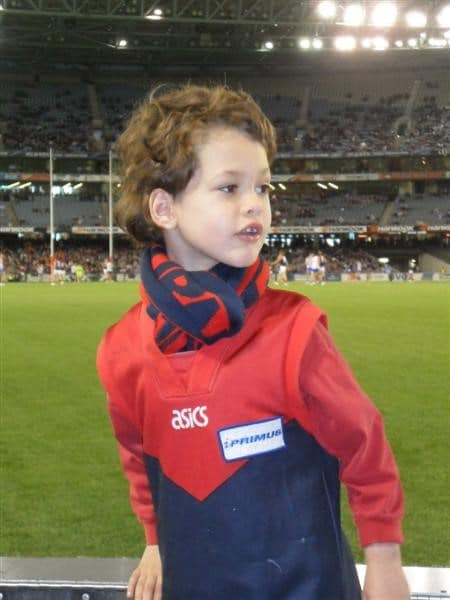Olivia
Based on an interview with Olivia and Michelle, Olivia’s mum (Qld, May, 2024)
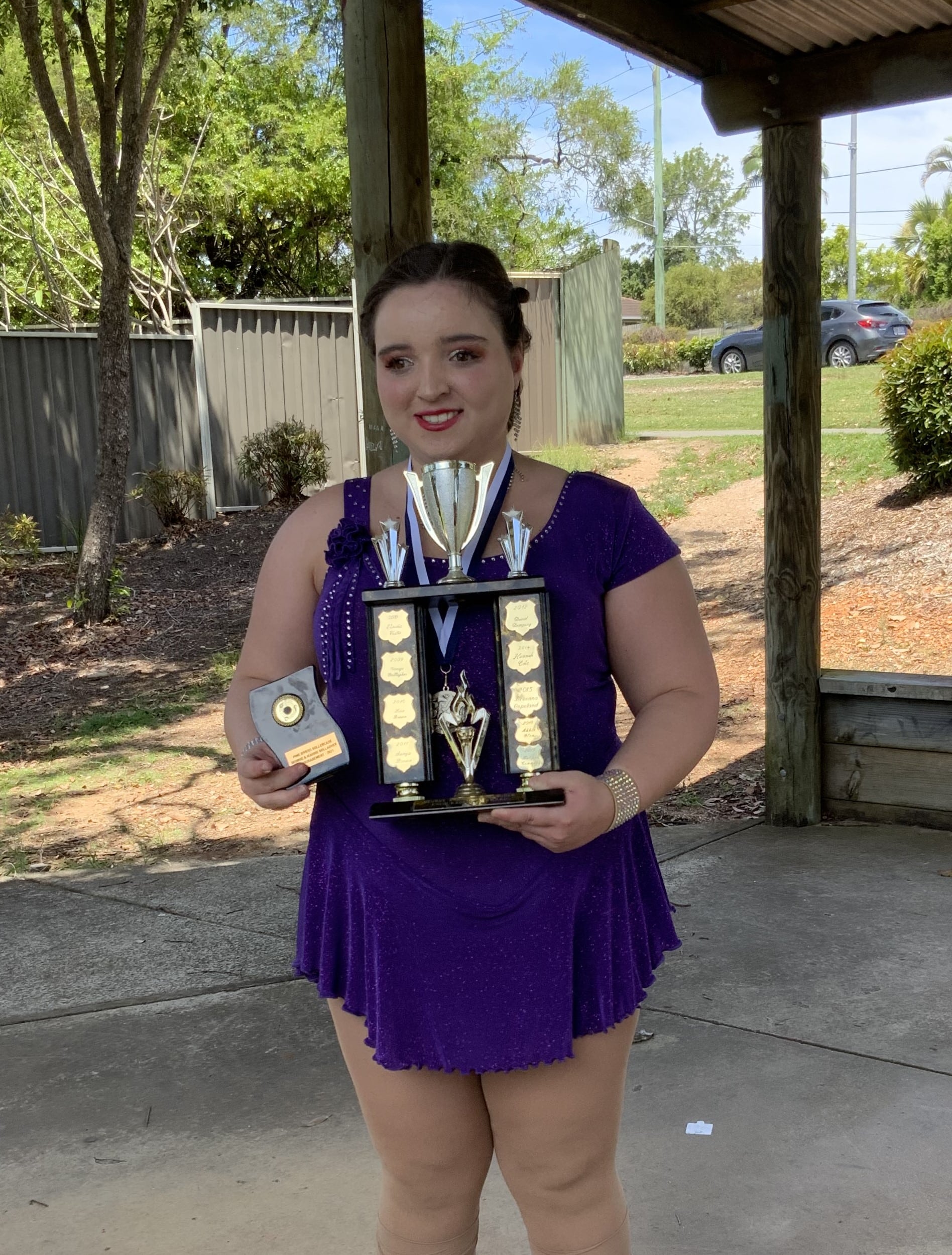
Olivia is a 25-year-old competition-level roller skater who lives in Brisbane. She started skating about 13 years ago, when Ron, a long-term family friend, who is sadly no longer with us, asked if she wanted to ‘kill’ a rainy day with a visit to the Caloundra Rollerdrome. As there wasn’t much else to do Olivia went along with the idea. She really didn’t enjoy herself that afternoon and left the ice rink adamant that she would not return. Indeed, if the weather had improved that week, it’s likely that she wouldn’t have done so. But, with the rain still pouring a few days later, when Ron suggested another visit, she acquiesced. And, for some strange reason that she still can’t explain, on her second visit, Olivia completely changed her mind about skating!
After that day Olivia enrolled in a learn to skate program and then went on to have private lessons and, whilst accomplished both on the ice and on roller skates, she has chosen to focus on the latter. She now roller skates three times per week and competes six times per year. As she acknowledges, ‘if it wasn’t for Ron, it would never have happened. So I always skate for Ron and his friend George and hope to do my best for them.’
The early days of competing were tough and Olivia was scoring negative points, which she says was very discouraging. But, with hard work and persistence she started to show that she really could skate on her own merit and now she’s earning fourth and third places. She also admits that it’s good to be able to outperform both her mum, Michelle, and sister, Laura, who, in her words, ‘are both hopeless on skates of any sort!’
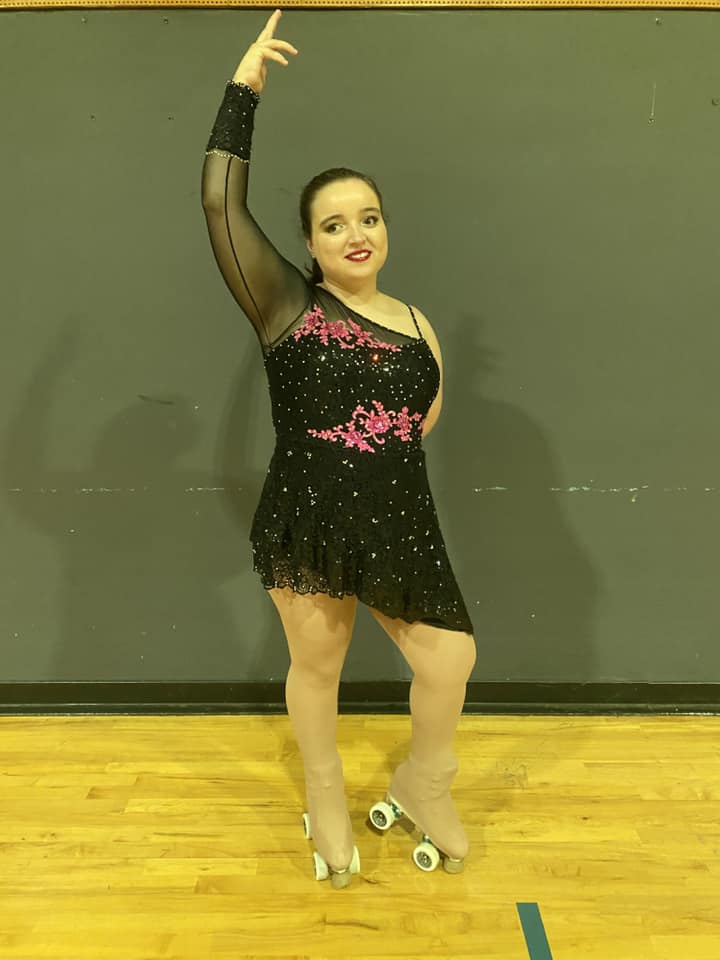
Olivia’s skating achievements are all the more remarkable considering she has lived with TSC her whole life. She was diagnosed before birth when cardiac rhabdomyomas were detected. Like most parents, her mum Michelle had never heard of the condition when she received the diagnosis and once she had recovered from the shock and upset, she quickly started to take action. Michelle managed to enroll Olivia into a special school even before she was born and by the time the birth took place she had multiple support services, including Queensland Health, Centrelink, Disability Services Queensland and Queensland Education at her bedside telling her how they could provide help. As Michelle says, ‘I really can’t fault the support that was immediately on offer.’
Of course living with TSC, even with support on hand, can be very tough at times. Michelle says an important thing she learnt early on was to never give people the opportunity to say, ‘no’. If she needed something for Olivia she never asked, ‘can we?’ but, ‘when can we?’ or ‘how can we?’ As a consequence, Michelle got on the front foot with early interventions and Olivia has had occupational therapy, speech therapy and physiotherapy from the day she was born.
As a baby Olivia developed seizures almost immediately and she was slow to walk and talk. Michelle says Olivia never crawled or sat up and then one day when she was about 4 years old, she just got to her feet. Olivia’s speech was also very delayed and most people couldn’t understand her until she was about 8 years old. Even then, her speech wasn’t clear and Michelle advocated for Olivia’s teeth to be straightened, as she was convinced it would help. And, once the braces came off, she was proven right!
Michelle has always encouraged Olivia to ‘know no boundaries’, and has at one time or another, enrolled her in jazz, ballet, tap dancing, tennis and singing. But it is skating that has become Olivia’s ‘passion’ and mum Michelle says she is proud of her determination and hard work.
When asked what the biggest challenge is in living with TSC, Olivia truthfully answers, ‘everything’ but she adds that she takes life as it comes and whilst she sometimes feels people can be less than understanding of her condition, she seeks comfort in having access to many ‘fur babies’, i.e. cats. She says she loves to cuddle them and finds them a great source of affection and positive energy, ‘cats just accept you as you are.’
The early days of competing were tough and Olivia was scoring negative points, which she says was very discouraging. But, with hard work and persistence she started to show that she really could skate on her own merit and now she’s earning fourth and third places. She also admits that it’s good to be able to outperform both her mum, Michelle, and sister, Laura, who, in her words, ‘are both hopeless on skates of any sort!’
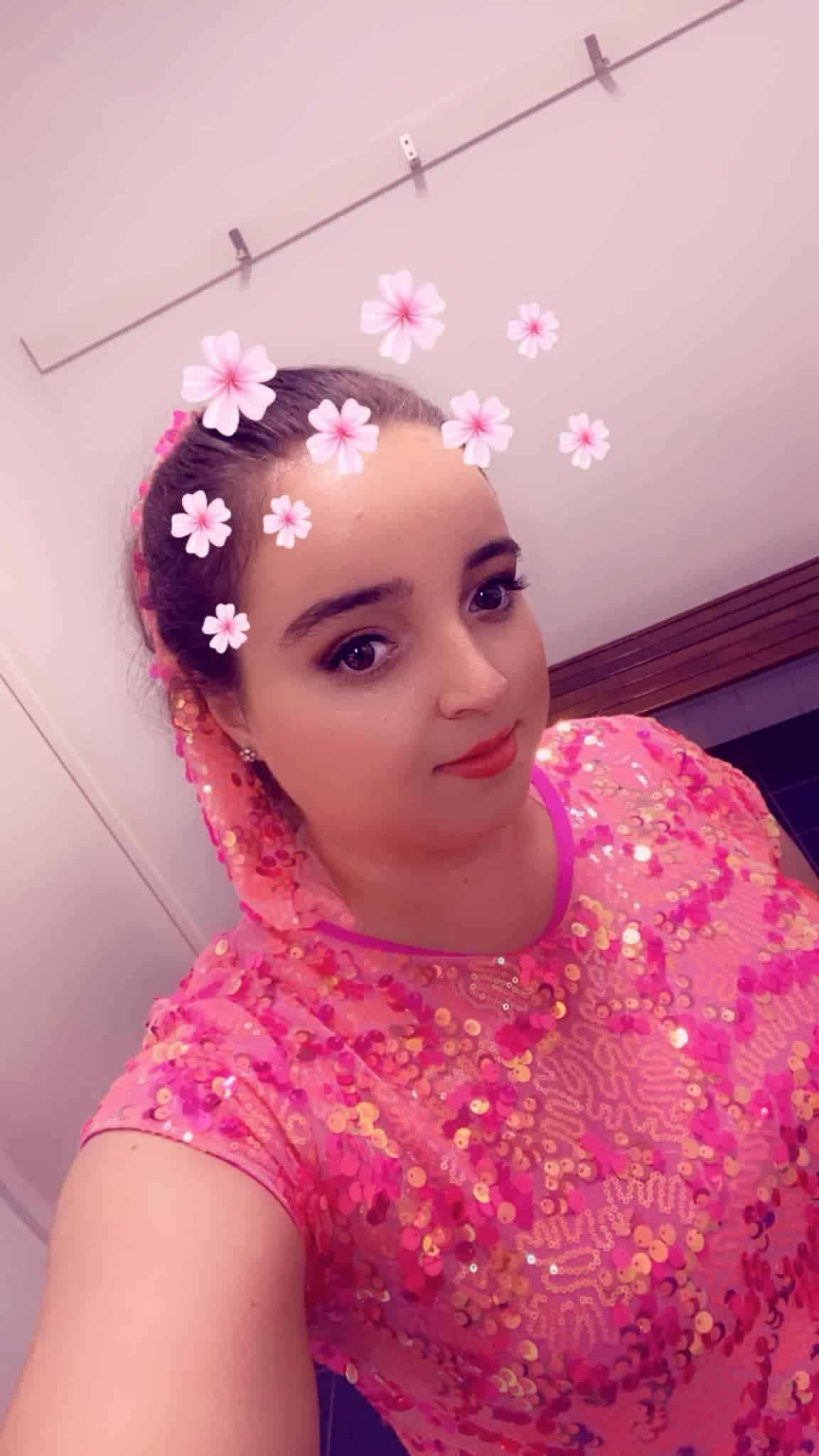
Olivia admits that at times the number of appointments and specialists that are involved with the surveillance requirements for TSC can be overwhelming. She is a trouper though and is proud of her ‘VIP – frequent flyer’ status, with appointments in neurology, psychiatry, nephrology, cardiology, dermatology, gynaecology, respiratory medicine and ophthalmology. Due to the particular nature of her TSC, Olivia’s paediatric cardiologist remains on her team.
Angiomyolipomas (AMLs) on the kidneys have been present since early adolescence, and luckily they have not grown much or caused any complications. Yearly ultrasounds and regular MRIs give peace of mind and a team of urologists and nephrologists keep an eye on things. As a baby, Olivia took vigabatrin for infantile spasms and this has affected her peripheral vision, to the extent where she has virtually no peripheral vision. Opthalmologists monitor her retinal harmartomas and they have remained stable.
Olivia has had skin presentations of TSC since birth, including hypomelanotic macules (white spots/ash-leaf spots), facial angiofibromas and some nail lesions. Nail lesions have become more prominent with age. Currently, Olivia does not have LAM or lung issues, but she regularly attends the respiratory specialist to monitor the situation.
As an adult, Olivia’s seizures look different to how they did in childhood and adolescence. She is more likely to have non-epileptic seizures which was realised during a long hospital and rehabilitation stint to regain the skills of speech and walking following one of these events. This was diagnosed as Functional Neurological Disorder (FND). Olivia has a team that have a special interest in FND including a neurologist, psychiatrist, occupational therapist, physiotherapist and psychologist to help with these events. Michelle and Olivia are grateful to Epilepsy Queensland who provided support in finding this team.
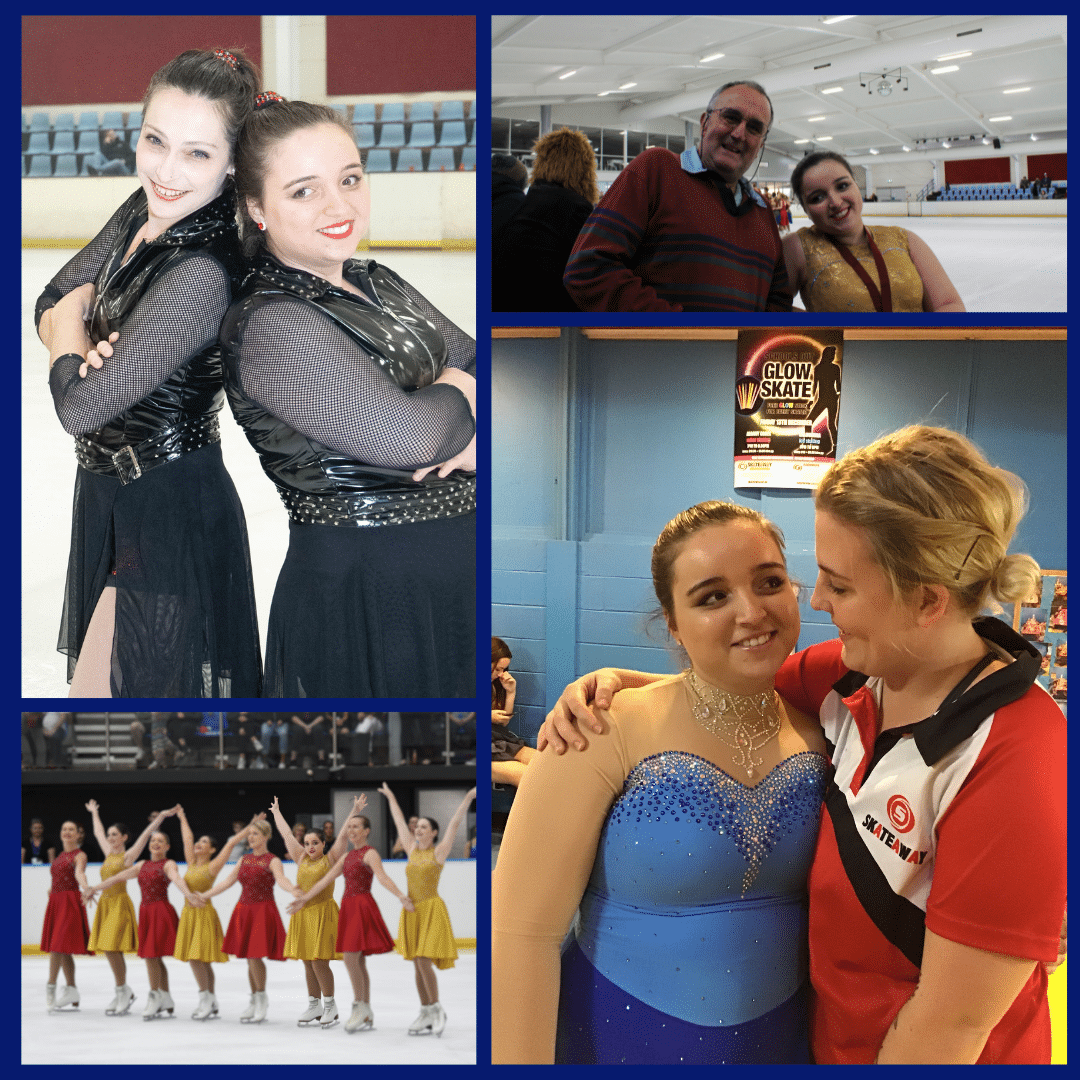
Importantly, and crucially, intellectual impairment does not stop Olivia from learning new skills and sharing her story with others.
Skating also opened up new social connections for Olivia. Through skating she has met friends who are paramedics, teachers and from many different walks of life. The group has been very supportive. They have helped Olivia see that she can be accepted for who she is and what she is capable of, and that she does not have to be held back by her TSC.
When asked what advice she would give to other families, Michelle says, ‘talk to other people and learn from them. Get early and lots of intervention. TSC is a life-long condition and interventions also need to be life-long. It’s not as though Olivia got to 18 and we stopped needing speech therapy, OT and physiotherapy. We were just able to reduce their regularity. She now has them every fortnight, instead of every week. Olivia needs supports, but with good support she is very capable and able to achieve. She can get taxis and buses and go skating with a support worker in attendance and without me.’ Michelle says she couldn’t be prouder of her daughter, both as a competitive skater and as a thoughtful and determined person who, ‘really kicks goals’.


